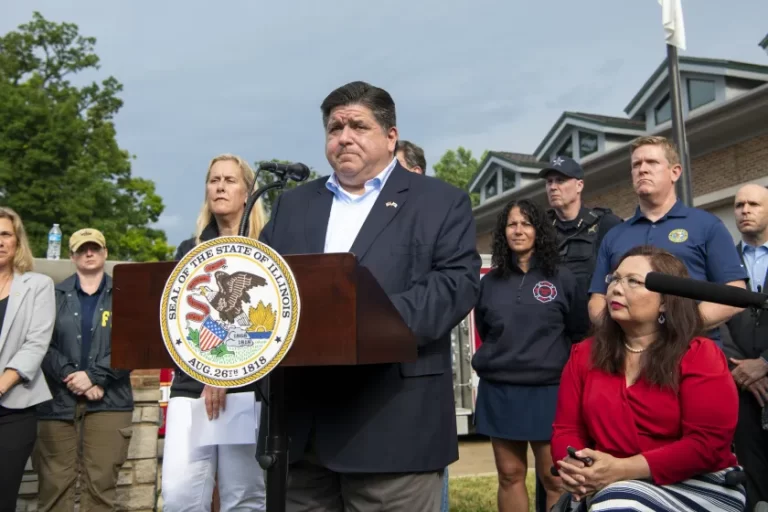SPRINGFIELD — Illinois is poised to become the ninth state in the country to ban assault weapons after the Illinois House on Tuesday approved legislation that will also stop the sale of high-capacity magazines.
It would immediately ban the sale of assault weapons in Illinois and cap the purchase of magazines at 10 rounds for long guns and 15 for handguns. It also makes rapid-fire devices, known as “switches,” illegal because they turn firearms into fully automatic weapons.
“No Illinoisan, no matter their ZIP code, should have to go through life fearing their loved one could be the next in an ever-growing list of victims of mass shootings. However, for too long people have lived in fear of being gunned down in schools, while worshipping, at celebrations or in their own front yards,” Pritzker said in a statement.
“This legislation will stop the spread of assault weapons, high-capacity magazines, and switches and make our state a safer place for all. I look forward to signing this bill immediately, so we can stop the sale of these deadly weapons as soon as possible.”
The passage comes a bit over six months after a gunman in Highland Park killed seven and wounded more than 48 people at a Fourth of July parade.
The Illinois House voted 68-41 to approve the measure, which included some changes made by the Illinois Senate.
“The people of the great state of Illinois have been waiting decades for legislation just like this,” said bill sponsor state Rep. Bob Morgan, D-Deerfield. “Let them wait no longer.”
There was some wrangling between the House and Senate after the House last week cleared the measure. But in the end, the two chambers — and Pritzker — came together to seal the deal.
During debate, state Rep. Tom Bennett, R-Gibson City, said the bill will greatly impact the 2.4 million “law-abiding gun owners” in the state. He also declared the initiative unconstitutional.
Changes made by the Senate to the measure included asking the Illinois State Police by administrative rule to provide further guidance to make sure hunters are not impeded. Private security contractors would also be offered exemptions regarding their firearms and magazines.
Language on high-capacity magazines was also changed, with 10 rounds allowed for long guns and 15 for handguns. The list of assault weapons was also updated. Other changes included allowing the Illinois State Police to add guns to the list of banned assault weapons.
The initial bill featured language that would have raised the eligibility for a state firearm owner’s identification card to 21. But that was quickly removed from the measure last week during House negotiations.
Shooting suspect Robert Crimo III is accused of killing seven people and wounding more than 48 at the Highland Park Fourth of July parade. And legislators sought to close what they saw as loopholes that led to the shooting.
Police say Crimo used a Smith & Wesson M&P15, an AR-15-style semi-automatic rifle whose initials, M&P, stand for “military and police.” Crimo was able to get a FOID card before he was 21 and buy multiple guns despite two incidents in 2019 in which he allegedly threatened to harm himself and his family.
In January 2019, Illinois created a “red flag” law that allows relatives and police to petition courts to get a firearm restraining order to keep a dangerous person from having a gun.
The new legislation would also extend the duration of such firearm restraining orders from six months to a year. It would also give state’s attorneys standing to assist in filing such an order.
Eight other states and the District of Columbia currently prohibit guns defined as assault weapons.
Many states, including California, allow residents to keep those “pre-ban” guns if they register them. Illinois would do the same, with registration for existing semi-automatic rifles that already are in public hands.
The Chicago Sun-Times and WBEZ reported in October that more people in Chicago are possessing large-capacity magazines, along with “switches” that convert handguns into illegal machine guns that can fire 20 shots in about a second.
Law enforcement officials said they believe the large-capacity magazines and switches are tied to an increase in mass shootings.

